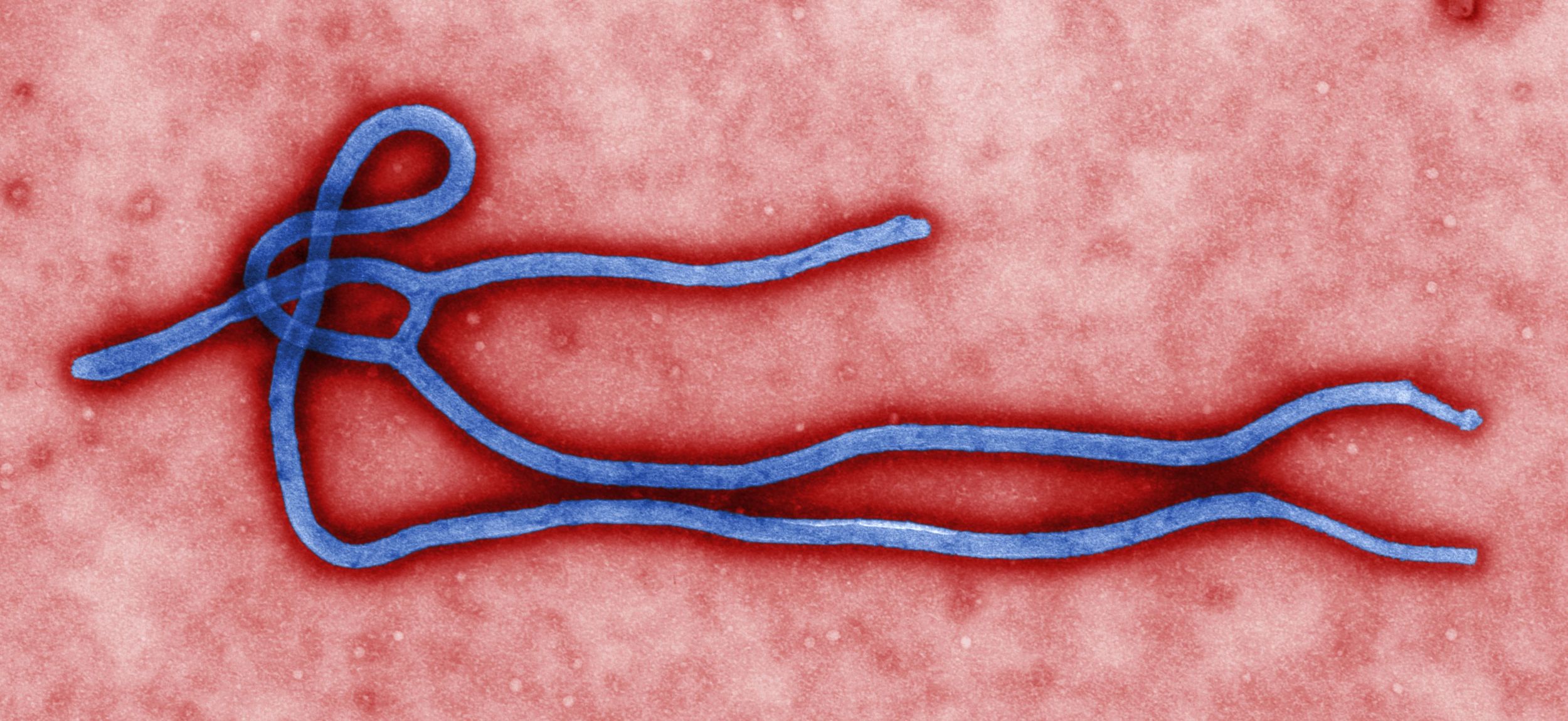Ebola epidemic will not affect SLC abroad programs
Ebola virus virion.
Photo courtesy of Wikimedia Commons
Many Americans have become increasingly paranoid about Ebola over the last few months. Though the rare, deadly disease has affected a very small percentage of people in the United States, it has been unrelentingly brought up by mainstream American media coverage over the past few weeks. It is currently unclear what this means for Sarah Lawrence and other similar colleges, yet concerns on campus are still present.
The outbreak started in early 2014 in the West African countries of Liberia and Sierra Leone. The virus did not reach America, however, until Sept. 30 of this year. According to the CDC, the disease is spread through, “direct contact with blood and body fluids of a person already showing symptoms.” Symptoms usually appear a few days after catching the virus. These include muscle pain, headaches, sore throat, and others that can lead to vomiting, diarrhea or rashes.
Though news of the outbreak has been met with serious concern, many have attributed the coverage of the disease to hysteria. SLC student Lauren McKarus (‘15) said, "I think this Ebola outbreak has become over sensationalized by the media. I lived through swine flu. I can make it through Ebola.”
There are ways in which the issue could potentially affect SLC. Students from parts of West Africa have attended the school in the past, and students have also gone to West Africa for study abroad programs. Director of International Programs at SLC Prema Samuel said that while plans have not really changed yet, the study abroad office is not ignoring the issue.
Advisory flier for Ebola in Health Services
Photo by Janaki Chadha '17
"There are programs that are still running. Senegal, Cameroon, Ghana…there's concern, but most of these programs tend to be self-contained,” said Samuel. She added that, “some programs like NYU did not run their programs in Ghana.” She continued, "It's a wait and see kind of a game because no one really knows what's happening. Every day we're getting more information on the situation.”
While no action on the subject has taken place, the office has had to deal with the issue of possibly canceling programs. Assistant Director of the International and Exchange Programs Christopher Olson said, “We had a representative from a certain program call us today, asking if he should still come and promote the program, saying [that] obviously he's worried about the same thing everyone else is worried about...along the lines of 'is it fair to even promote the program when I know it might be canceled and should I come talk to your students and tell them it's going to be okay'."
In the health center, Mary Hartnett and Cynthia Schaffer have been paying close attention to CDC guidelines and making sure that SLC would be prepared in the case of an infected patient on campus. "[We've been] asking people to self identify in order for a risk assessment to be done," said Hartnett, Director of Medical Services at the college.
She elaborated on how one of the main problems is finding out who is truly at risk. Part of the reason for the paranoia may be due to the fact that the symptoms could mean a myriad of other conditions, like a cold. The generic symptoms for such a deadly disease makes every cough seem like a threat.
Schaffer, a Nurse Practitioner at SLC, said, "When someone says, I have body aches and I have a fever, I mean, they could be coming down with a cold, they could be coming down with a flu, they could have a stomach virus […] you don't want people to panic and feel like that's a definitive thing. You get on WebMD and if you put 'headache' it lists everything from headache to meningitis to Ebola at this point.”
The CDC does not recommend that colleges quarantine students, faculty, or staff simply based on travel history. At SLC, the health center only considers someone at risk if they present symptoms and have a risky travel history. The policy is then to isolate the student.
Hartnett said, "We do not have the facility here to treat, or even to diagnose. We only identify risk factors, and then we call in the higher level of assessment and higher level of skill at that point which is the Department of Health and the CDC.”
Sarah Lawrence students generally agree that the American media is not handling information on the disease well. Senior Class President Stephanie Permut ('15) said, "I think that while [Ebola] is dangerous and has wreaked havoc throughout West Africa and that's a problem, the dialogue shouldn't really be around contingency planning for Americans but rather improving infrastructure there so that disease epicenters can be curtailed, rather than freaking out over containment of the U.S. relative to those place."
Adam Treitler ('15) said, "I've studied bioethics here. I've studied biology, I've studied public policy, and clearly we are not prepared for something like Ebola." He pointed out that viruses like enterovirus have killed more people on U.S. soil than Ebola, but that the media isn't discussing those viruses as extensively. "We're just becoming so racist and xenophobic, that we're literally racist towards diseases," Treitler said. He continued, "I think there's this idea that when white people start getting it it's bad. You know, it's okay if it's over in Africa killing ten thousand people."
Amidst the concern, hysteria and controversy, the issue has also had made its way into the classroom. Michelle Hersh, Professor of Biology, said that she has been thinking about the disease from the perspective of a scientist, and has brought the issue up in some of her classes. She still added, however, "The chances of a student from Sarah Lawrence contracting Ebola are very very very very small."
by Joseph McFarland '16
jmcfarland@gm.slc.edu


